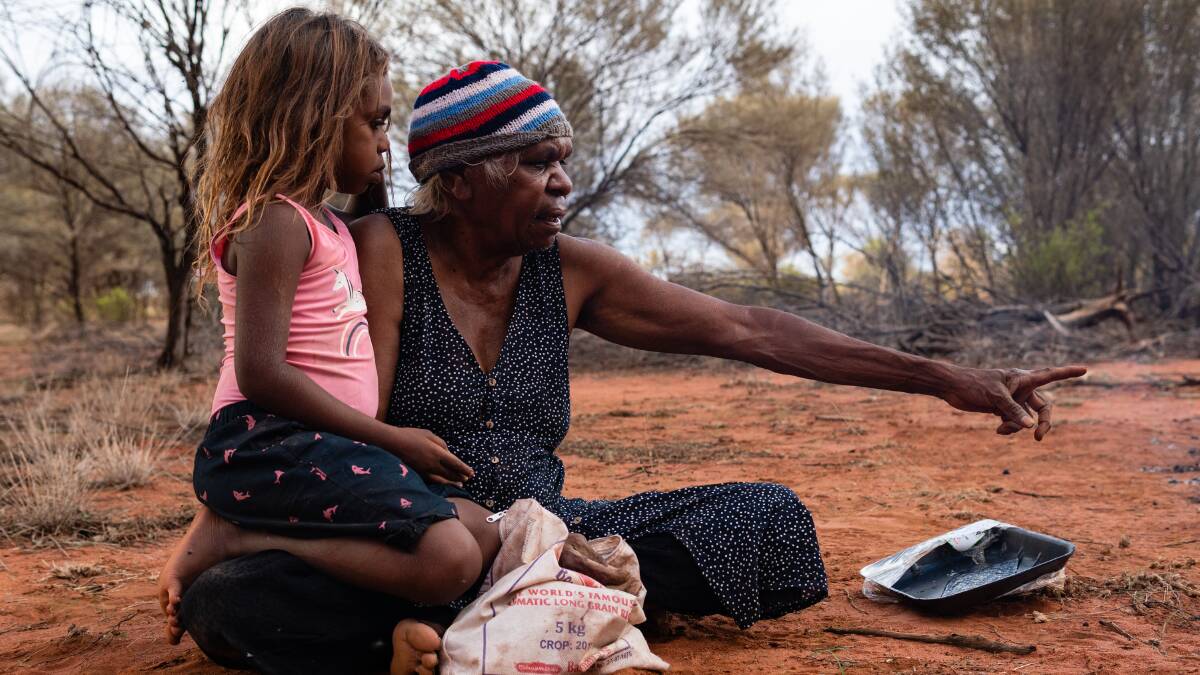Proportionally, we are the most incarcerated people on the planet. We are not an innately criminal people. Our children are aliened from their families at unprecedented rates. This cannot be because we have no love for them. And our youth languish in detention in obscene numbers. They should be our hope for the future.
- The Uluru Statement from the Heart
There is one way we can stop Aboriginal deaths in custody. Governments already know what they can do to make the change. But they don't. We must stop stealing Aboriginal and Torres Strait Islander children from their families.
Subscribe now for unlimited access.
or signup to continue reading
We said sorry to the Stolen Generation, sorry to the families whose babies were removed from their love and care. That was 10 years ago. But we weren't really sorry. We are still inflicting untold harm on Aboriginal children, who are being removed from their families at a furious rate, greater than during the Stolen Generation.
When I first wrote about this in 2014, there were 14,000 children removed. The Australian Institute of Health and Welfare figures show 15,455 children in out-of-home care in 2015 and 17,979 last year, an increase of 16 per cent over four years, an increase in the number of children torn from their families. Around one third of them have no daily contact with Aboriginal community or kin.
These children are meant to be under the protection of the state, but what happens next shows the state does not care. Children who are placed in out-of-home care are hugely overrepresented in the criminal justice system.
We can stop this. And we must.

Antoinette Braybrook, the chief executive of family violence prevention and intervention service Djirra, has called on state and federal governments to rethink this industrialised criminalisation of Aboriginal children. As chair of the National Family Violence Prevention and Legal Services Forum, she is demanding that instead of stealing children, protection services work to support families.
What happens now is that child protection services are notified of a concern and the children are then removed. What should happen is that on notification, the families should be flooded with support. How hard can that be? How hard can it be to surround those in need with useful tools to combat disadvantage and circumstance?
It's well-documented that most Aboriginal and Torres Strait Islander people who are in adult prisons come from the child protection system. They are caught up in the injustice factory from early on.
"Child protection involvement creates a pathway through to adult incarceration. It's a vicious cycle of institutionalisation of our people," Braybrook says.
Three years ago, the Australian Law Reform Commission delivered the report Pathways to Justice - An Inquiry into the Incarceration Rate of Aboriginal and Torres Strait Islander Peoples. It noted the link between out-of-home care and incarceration, and said that incarcerations rates of adult Aboriginal and Torres Strait Islander peoples could not be properly addressed without a national review of child protection and the state and territory laws that see Aboriginal and Torres Strait Islander children placed into out-of-home care.
It's the link. It's the thing governments could do to stop deaths in custody, or at least diminish the occurrence. I doubt whether re-education camps for police will do much. Surely there is already investment in training for those in the justice system, yet we still have endless deaths in custody.
Kath McFarlane, adjunct associate professor at UNSW's Kirby Institute, finished her PhD five years ago. It analysed the data linking out-of-home care and incarceration. The results were terrifying. What she calls "care-criminalisation" has been acknowledged and confirmed in a series of government and independent reports, including the 2017 Royal Commission into the Detention and Protection of Children in the Northern Territory; the 2018 Queensland Family and Child Commission's report The criminalisation of Children living in out-of-home care in Queensland and many others, including Family is Culture from the Independent Review of Aboriginal children in OOHC chaired by Megan Davis.
What is care-criminalisation? It's what happens when a kid is placed into out-of-home care: the increased surveillance, the monitoring and policing, the heightened punishment. An Aboriginal kid who is in out-of-home care experiences punishments and higher levels of justice involvement for the kinds of behavior that non-Aboriginal kids get away with on a daily basis. The bad language. The talking back. Anger.
I'm not wanting to trivialise bad behavior - but it is completely unjust to treat children in care one way and kids living with their own families another way. Because once justice systems get involved, that's when Aboriginal and Torres Strait Islander kids end up in jail, or dead. McFarlane says Aboriginal and Torres Strait Islander children are 10 times more likely to be in out-of-home care than non-Indigenous children.
READ MORE:
Paul Gray, an Associate Professor at the University of Technology Sydney's Jumbunna Institute, says Australia can improve outcomes by supporting and funding Aboriginal community-controlled prevention, family supports and healing, as well as early education and care, including interrupting the pathway from out-of-home care to involvement with the justice system.
"These actions need to be led by Aboriginal communities. It's definitely long past time for governments to listen to Aboriginal voices and commit to making real change in this area," he says.
Aboriginal community-controlled organisations are crucial to making change, yet the federal government has moved to limit those voices. Last year, it axed the funding for the National Family Violence Prevention and Legal Services, the peak body of services for Aboriginal and Torres Strait Islander survivors of family violence - of which Antoinette Braybrook is chair.
She says there's been a six-month reprieve before funding ends. That funding should only end when the horrors facing Aboriginal mothers and their children end. That could take a long time, given the longstanding lack of commitment.
- Jenna Price is an academic at the University of Technology Sydney, where Paul Gray also works.


